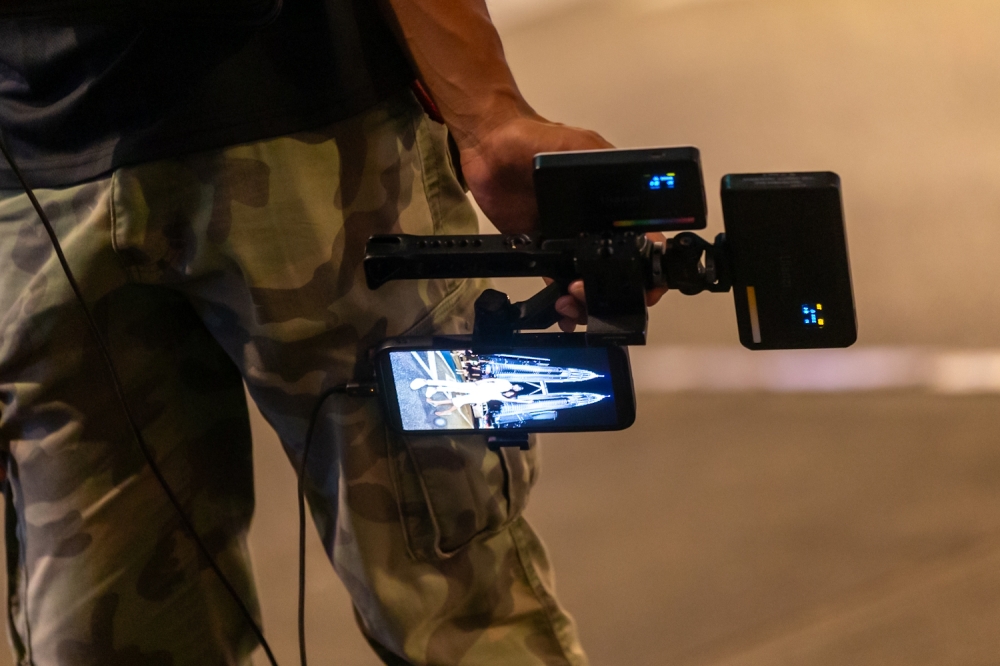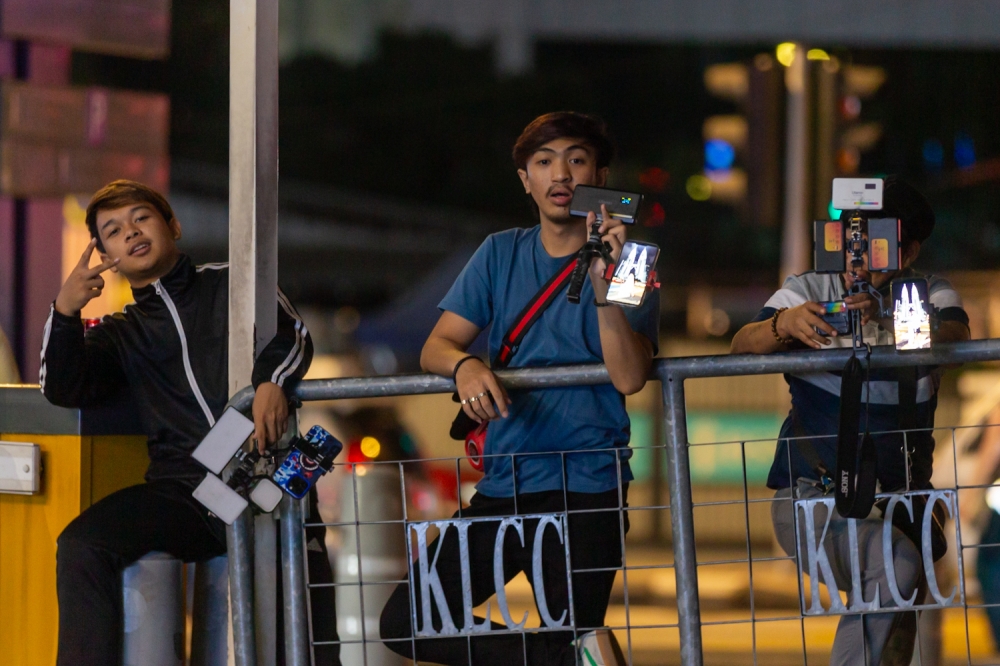- KLCC “photo touts”, mainly young Sabahans, offer tourists affordable photo services near the Petronas Twin Towers but face competition, bans, and tensions due to their growing numbers.
- While some tourists appreciate the convenience, others find the touts’ persistent approach overwhelming, leading to occasional disputes and even physical altercations.
- The photo touts claim they are simply trying to survive post-pandemic, and deny being part of any organised syndicates or causing trouble.
KUALA LUMPUR, Nov 25 — On weekend evenings near the iconic Petronas Twin Towers, it is common to hear the bustling scene interrupted by shouts of “Photo, photo, photo!”
These calls would come from dozens of young men and women armed with mobile phones and funny-looking mounts complete with lights and power banks — promising quality snapshots for tourists, local and international alike.
When Malay Mail visited the popular intersection of Jalan Ampang-Jalan P. Ramlee-Jalan Yap Kwan Seng near the Public Bank headquarters and NZ Curry House, at least 10 of such “photo touts” could be seen approaching passers-by with their services.
“RM10 for a picture, and you can choose the ones you like. If you don’t like them, no need to pay,” said one of them, who wanted to be known as Ben.
The 20-something from Sabah said he works in the service industry by day. But at night, he joins the growing ranks of photo touts trying to earn a side income.
“I sell three or four pictures on a good night. It’s not much, but it helps,” he told Malay Mail.
A street photo tout captures a moment for a visitor near KLCC, Kuala Lumpur. — Picture by Raymond Manuel
“It’s hard to make ends meet. Sometimes I make less than RM100 a night, often much less because there are so many of us now — around 127,” said another tout, who wanted to be called Jake.
“We’re everywhere. Here, across the street, opposite the mall on different sides. Pretty much all of us Sabahans, and all part-timers as far as I know.”
Offering memorable shots of KL
Several of them told Malay Mail that they are just trying to survive in the aftermath of the Covid-19 pandemic, which left many of them without stable jobs.
The tools of their trade are modest. Most use mid-range smartphones from Oppo or Samsung, paired with LED lights from Chinese brands like Ulanzi to enhance picture quality, and power banks to keep those devices charged up.
While some would allow tourists using their own phones, most of them take photos with their own devices before sending them over using WhatsApp text messages or Bluetooth connection.
It is unsure who first came with the idea for the hustle, but their service have been appreciated by some tourists — the bright illumination, for example, really helps when taking photos at the fairly dark Saloma Bridge with its colourful light displays.
Some have Bluetooth speakers to add a lively vibe to their makeshift photography stations.

The photo touts are usually equipped with a phone mount, along with LED lights and power banks. — Picture by Raymond Manuel
“They stand near the gates or across the traffic lights to get better angles of the Twin Towers,” said Jake.
“It’s all about catching tourists’ attention and offering them something memorable.”
But their growing numbers have also brought problems, with several incidents of touts arguing over customers escalating into physical fights.
A news report earlier this month cited locals claiming they were stopped from using their own phones to take any photos, and were told to use the touts’ services instead.
Malay daily Sinar Harian also reported that the management of Suria KLCC at the Petronas Twin Towers have since banned them from operating within the premises and are confined to the areas just outside.
No gangs, no foreigners
A man, calling himself Jahar, lamented the ban — which he said had stemmed from the behaviour of a few rowdy individuals.
“They fought over customers, and now we can’t work inside KLCC any more. We’re just trying to cari makan you know?” he said, using the Malay phrase meaning “making a living”.
While their intentions may be innocent, Malay Mail observed that the photo touts may have left a mixed impression on some tourists.

Most of the photo touts are from Sabah, trying to make ends meet after uncertainty caused by the Covid-19 pandemic. — Picture by Raymond Manuel
While some appreciate the convenience of having a professional-looking photo taken, while others feel overwhelmed by their persistent approach.
During Malay Mail’s visit, few customers were observed engaging their services — in stark contrast to another visit several weeks ago, where international tourists were more than happy to pose for them.
They also denied being part of any organised syndicates, and blasted stereotypical accusations about them being foreigners or undocumented migrants pretending to be East Malaysians.
“We’re not in any gang… We’re just trying to earn an honest living. People think we’re causing trouble, but that’s not true for most of us,” said Jahar.
This post was originally published on here







